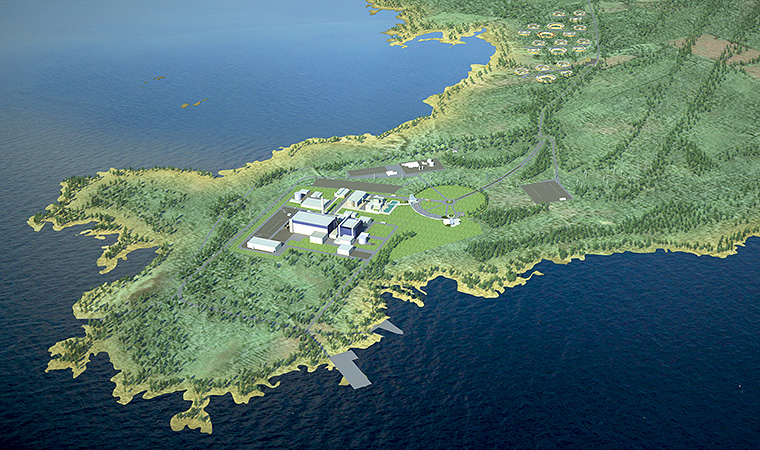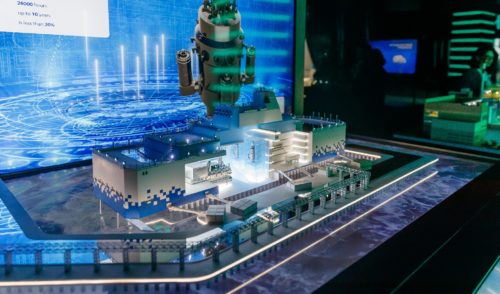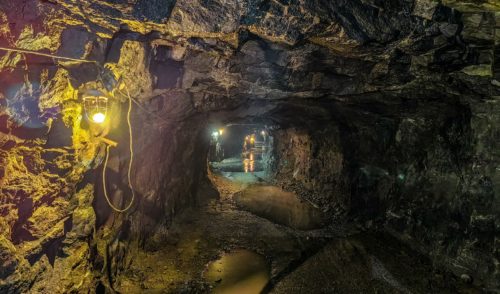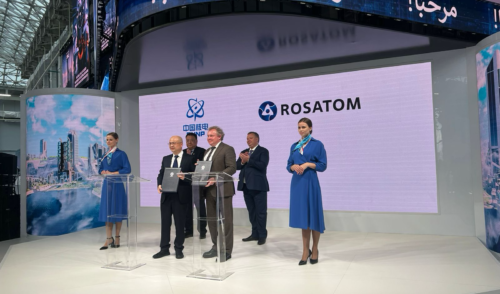
New shareholders welcomed
back to contentsFortum has announced its decision to buy a 6.6% stake in Fennovoima to build Hanhikivi-1 in partnership with Rosatom. Another shareholder will be the Finnish SRV with a 1.8% stake in the company. Outokumpu has increased its share in Fennovoima from 1.8% to 14.1%.
The Finnish share was increased pursuant to the requirement of the Finnish regulator that at least 60% in the project should be held by European investors. Minister of Economic Affairs Olli Rehn stressed social and economic importance of the Hanhikivi project. “It will have a sizable effect on the Finnish economy. Construction will require tens of thousands of man-years,” reminded the Minister.
Rosatom’s First Deputy CEO Kirill Komarov commented on the news, “We welcome new shareholders, our long-standing partner Fortum and SRV, and an increase in Outokumpu’s share in the project. New partners prove good commercial prospects, safety and confidence in success of the nuclear plant project.”
According to Kirill Komarov, Hanhikivi-1 will create tens of thousands of new jobs right on the construction site and in related industries. Besides, the project will strengthen Finland’s competitive advantages by supplying cheap electric power to Finnish companies and households in the long-term. Hanhikivi will also contribute to the reduction of greenhouse gas emissions. “As before, we are confident in the project success. We are glad to see that the project is supported by the Finnish government and new shareholders. In its turn, Rosatom guarantees compliance with budgets and contract terms and will provide the most reliable technology,” noted Kirill Komarov.
Finland’s decision to increase its share in the Hanhikivi project is well grounded, believes expert Yuri Prokudin from FX BAZOOKA analytical web portal. “First, there is a formal, or let us call it legal, reason. The project will fully comply with the regulator’s decision to increase the Finnish share up to 60% as required by the European standards to avoid legal collisions. Second, the nuclear power plant will supply relatively cheap electricity for energy-intensive manufacturers, one of whom is the steel producer Outokumpu, a major Finnish power consumer looking for more available power capacity. In fact, it will benefit from participation in the project by receiving cheap power for its power-intensive production facilities in the long term. The increase in its project share proves confidence in stable prices for power to be generated by the nuclear station. SRV stands on a similar ground since construction it is engaged in is far from being a low-power industry.”
The third reason is an opportunity for Finnish companies to work with Russia, says the expert. Political sanctions cover the power industry but do not apply to the nuclear segment. He stressed that SRV had a long track record of doing business with Russian companies, and so did Fennovoima.
“Finnish partners do not call into question the nuclear plant’s economic prospects since the Russian project involving the latest technology and meeting all the safety and efficiency requirements will generate cheap power and guarantee reliable operation and maintenance for the long term,” said Yuri Prokudin.
Russia will also win from the project. First, Rosatom will receive income as a project shareholder right after power sales begin, the expert notes. “Second, it is a perfect opportunity for Rosatom to export high technology which will arouse potential interest in Russian projects among foreign investors in Europe, Asia and Asia-Pacific.”
According to Leonid Gusev, an expert from the MGIMO Analytical Center, it is mainly economic considerations that lie behind the decision of Finnish companies to increase their share in the Hanhikivi project. “They see prospects and benefits of the project and understand that its product will be in demand. The participation of private investors suggests a conclusion that there is no political motivation or, to be more precise, economics have overcome politics in this case. In particular, one of the investors, Outokumpu, said that its interest towards the project was supported by the need of secure power supply for its steel making facilities,” Leonid Gusev explained.
The expert is sure that an active political campaign against the project did not undermine the investors’ confidence in economic prospects and reliability of the to-be-built nuclear station. “It is due in no small part to the Russian-designed Loviisa nuclear power plant, which is a good example of safe and reliable operation, and to many years of successful partnership with Russian nuclear companies,” added Leonid Gusev.




